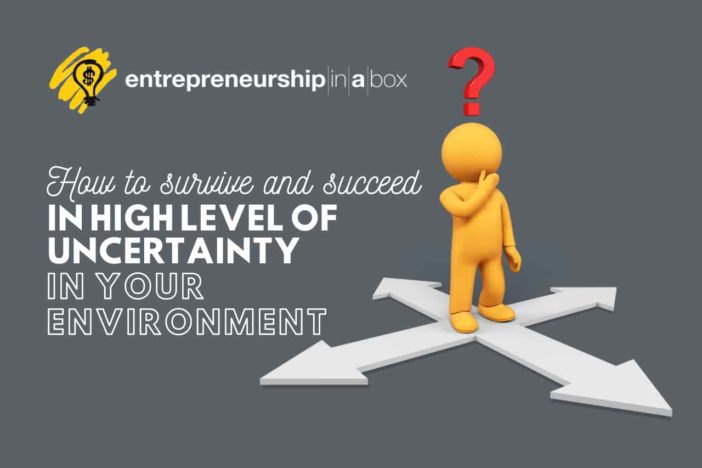Testing and experimenting are some of the most significant responsibilities for you as an entrepreneur. This is important if you have in mind that your business operates at a high level of uncertainty.
So, you make assumptions, build the hypothesis, test them, and avoid possible traps because they are still only assumptions, not the facts. Here, I would like to cover some important things about your business environment.
How People Take Actions Based on Success and Failures
I will start this post with a study conducted at Stanford University by Dr. Carol Dweck that shows how people think about their actions and how they are associated with success and failure in an uncertain world in one of two ways.
According to the research, one group is aimed at activities that surely will succeed. All these activities are based on group members’ intelligence, knowledge, and skills in this group. This group requires security for themselves.
The second group is the opposite. The members of the second group are directed more towards uncertain situations. They are open to things that would challenge them. They understand that mistakes are the facts in their lives and the opportunity to increase their knowledge, skills, and value. Also, they simply work without fear of making mistakes on their journey.
According to Dr. Dweck, the first group is called a “fixed” mindset, while the second group is called a “growth” mindset.
Entrepreneurs With “Fixed” Mindset
Entrepreneurs with a “fixed” mindset try to make plans that will draw their road in advance. These plans give them a final direction to get simply and quickly where they want to be.
Another question that in many cases stay unanswered is how much these plans help them achieve real entrepreneurial success.
Entrepreneurs With “Growth” Mindset
Unlike these people, entrepreneurs with the “growth” mindset create plans to get a clearer picture. Once they understand what they want to achieve, they use these plans only as a guide. At any moment, they can reject their plans. They simply allow their path to success to be closer to them. Because of that, they achieve success.
How You Can Achieve the Success
Steven Pressfield, in his revolutionary book “Do the Work: Overcome Resistance and Get Out of Your Own Way,” wrote:
The three dumbest guys I can think of: Charles Lindbergh, Steve Jobs, Winston Churchill. Why? Because any smart person who understood how impossibly arduous were the tasks they had set themselves would have pulled the plug before he even began.
Ignorance and arrogance are the artist and entrepreneur’s indispensable allies. She must be clueless enough to have no idea how difficult her enterprise is going to be—and cocky enough to believe she can pull it off anyway. How do we achieve this state of mind? By staying stupid. By not allowing ourselves to think. A child has no trouble believing the unbelievable, nor does the genius or the madman. It’s only you and I, with our big brains and our tiny hearts, who doubt and overthink and hesitate.
You can see what is crucial that characterizes success through mentioned research and the words of Steven Pressfield. Success doesn’t have a clear and secure path that you can simply pass. This is true, mainly when your environment is characterized by uncertainty. Reaching success is much more complex, and you cannot describe it with simple plans.
Are You an Entrepreneur With “Fixed” or “Growth” Mindset is Important When it Comes to Uncertainty
Let’s put some questions that you can answer at this point. These questions can tell you what kind of entrepreneur you are. Are you an entrepreneur with the “fixed” or “growth” mindset?
- When you come to some opportunity where success or failure is uncertain, what you are doing usually?
- How do you treat the plans related to your business? As static or dynamic things?
- Are you just stopping and starting with research, analysis, and consideration of every possible angle for every challenge that you are seeing?
- Or, are you spending days or weeks thinking about whether to catch the challenge in front of you?
Confusion is Your Biggest Enemy Especially When Your Working Environment is Characterized By Uncertainty
You have, or better said, you think you have a great idea you want to convert into a successful business. The idea itself is something that you believe will succeed. You will earn money. You will enjoy working on it. Simply, building such a business would be fun, interesting, and will improve your life and the lives of your potential customers.
So, what are you doing after that initial euphoria about your idea?
If you’re like most entrepreneurs, you start to research, buy books, or search the internet. You simply want to increase your knowledge about the idea. But, how you are increasing your knowledge, your idea will also change. It will have a different look, shape, or form.

As you learn more, you will come to more questions because you feel that you need more knowledge as you learn. Therefore, you continue with your research. In such a way, you come to totally different information conflicting with other information you previously got. Such conflicting information will make you insecure about what to do next. This will lead you to confusion. On the other side, confusion is one of the biggest enemies for all entrepreneurs.
Confusion and insecurity about what you need to do, in most cases, will lead you to procrastination. So, you will postpone taking the first steps related to your business idea.
In such a way, you lose two types of valuable resources for your business. They are your time and money.
You are wasting your time. That is one of the scarcest resources for all entrepreneurs. You cannot increase your time because you have only 24 hours a day, seven days a week, 12 months a year. So, you think that the market will wait for your brilliant idea. But the market will not wait for you. The market will put pressure on you because the market wants something new, something useful, something that will improve the lives of the people there.
Money is the second significant resource that, with such an approach, you will waste. You can easily convert your time into money. Just calculate how much you make per day and multiply it with days lost during your research, learning, analysis, and planning.
Such entrepreneurs think that successful entrepreneurs are smarter than them, have more knowledge, more experience. They think that they have some secret information on which they are basing their own success.
But this is far from the truth.
Learn By Doing, Instead of Learn First and Then Do
Successful entrepreneurs are people just like you. Regardless of the uncertainty, you are facing, no matter the knowledge you have, they are just like you or at least all of them start to develop, grow and mature in the same way.
The entrepreneurial journey is to do something. To do something that you did not do before. Or, something that, even it is done before, now will be better. Entrepreneurship is an act of creation. You must remember this and have it in your mind during your entrepreneurial journey. So, when you find yourself in a position to create, and you know that no one else was before in these areas that you want to create, you must be aware that you will never find all the possible information you think you will need. Mistakes are unavoidable. You need to pass through them.
It is enough to look at successful entrepreneurs. You can not find anyone who succeeded from the first time. Behind most successes stand not one but tens or hundreds of failures.
Henry Ford succeeds in realizing his vision in his forties after many failures. Most of his previous attempts to produce and sell the car to the masses have been unsuccessful. What if Henry Ford had abandoned his vision?
Today simply you don’t know anything, or your knowledge is not certain. Why? Because in today’s world, it is impossible to have the ability to know everything. It was in the past, and yet our educational systems, in most cases, are focused on the past, not on the future.
Thus, I come to the crucial thing.
Assumptions and Hypothesis Are the Basis for Your Success
In this changing world and environment in which we live, today’s true things will be inaccurate tomorrow. Therefore, you can not be sure about the real needs of your business.
Today simply everything operates based on a hypothesis.
- Who will buy your products or services?
- What are the real needs of persons who will buy them?
- How much will they pay you?
- Where will you find them?
- Will your products or services solve their problem?
- Do they have possible replacements for your solution?
- Is it worth to solve this type of problem?
You need uncertainty to ensure a big success.
Johnathan Fields, in his book “Uncertainty: Turning Fear and Doubt into Fuel for Brilliance,” says:
Creators need data. They need judgment, feedback, and criticism. Without them, there’s no way to know whether what you’re creating is working or not. When you base your actions on random guesses, rather than on relevant information, growth and movement toward brilliance slow dramatically or grind to a halt. Kill constructive judgment and you retard growth, adaptation, and evolution.
Some of the greatest innovation and success comes from taking the endeavor a step beyond embracing and downright bum-rushing uncertainty, risk, and criticism.
Your Creativity Will Push You Forward But, First Remove Your Fear of Mistakes
The new time in which we are living, but creativity as one quality above everything else. Creativity, on the one hand, is achieved by asking questions. So, entrepreneurs will be creative enough only if they ask the right questions.
Why are young kids creative? Because they constantly ask questions in the style of why this, why that, and so on. If you go into today’s schools with the younger kids and ask challenging questions, all of them will try to answer. It doesn’t matter if the answer is true or not. They will think and try to give you the answer.
But, after several years, when you ask the same students a difficult question, you will notice how everyone is hiding behind other students. They simply did not try to give you the response to your question because of fear of mistake. Our systems today are installing fear of a mistake inside all of us.
In the business, this fear will simply kill you.
So you’re aware that you will need knowledge that you will basically own. But in many specific situations, you will create it as you go. Now, to ensure that you will succeed, you will need a process.
The basis of such a process lies in always having guesses, assumptions, and hypotheses that you will test. For example, customers want to have a 20-megapixel camera integrated into your product. But, still, this is only the hypothesis. You need to test it to determine if it is 20 or 18 or 15, or simply don’t want such a feature.
The critical question is how to test the hypothesis. You will quickly get to them, but in this process, your hypothesis needs to be tested and validated or adapted if they are not validated.
There are many pitfalls when you are in a learning mode. You must be aware of them because this process will not succeed if you are under their influence.
You need to remember that you will never have enough knowledge to help you in this world based on uncertainty. This means that you must base your actions on your assumptions but learn from the validation of those assumptions. In such a way, you will enter into the cycle of continuous improvement. It is the only formula for success today.



